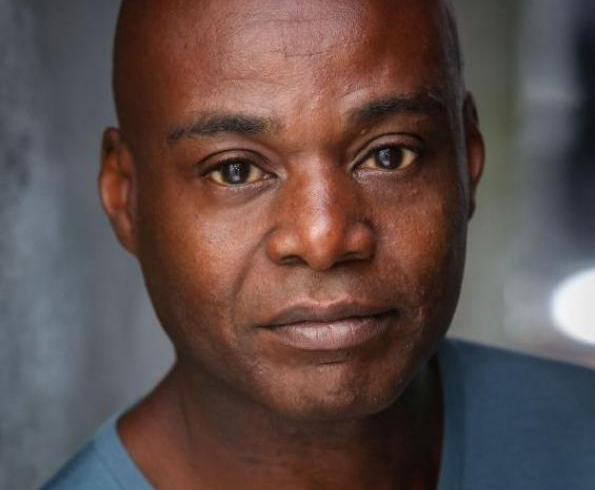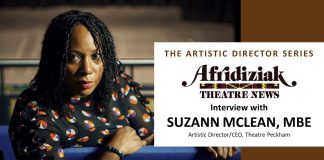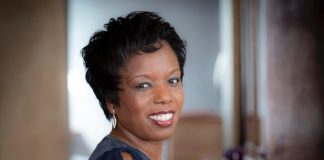Barber shops around the world all have one thing in common; they hold down our community. From boys to men, everyone is welcome in the shop. Whether you came for a trim or just to talk, the doors are always open, and you certainly will leave feeling a changed man.
Barbers become father figures to many men as they lend an ear to all who confine in them. Some might say they are better than therapists and teachers. One thing I do know is that they are essential to our community and I am excited that people around the world can witness this The Barber Shop Chronicles by Inua Ellams.
We are thrilled to learn more about how Barber Shop Chronicles have impacted audiences around the world. Maynard Eziashi (playing Musa, Andile, Mensah) has been a part of the play since the first performance at the National Theatre in 2017 and has great insight to what it’s like to be a part of the show.
When we toured Australia, we tried to appeal to the Aborigine community and encourage them to come and see the show as we felt they would gain a lot from it. We went into Aborigine communities which allowed us to see how they were treated. Meeting them impacted me greatly.
Barber Shop Chronicles has toured in several countries, including the UK, Australia, New Zealand, Canada and USA. Which of the countries has impacted you the most and why?
They have all impacted me in different ways so I would find it hard to choose the most impactful. When we toured Australia, we tried to appeal to the Aborigine community and encourage them to come and see the show as we felt they would gain a lot from it. We did a lot of outreach programmes where we went into Aborigine communities which allowed us to see how they were treated, as often there is mistreatment there. Meeting them impacted me greatly. It was also interesting to see the different responses from Non-aboriginal Australians. While we were there, they had Australia day which was interesting to be there for. We went to a few Aboriginal festivals which showed their experiences of Australia and highlighted that for them the day represents the day people landed on top of them and took over. For me what I have enjoyed overall is what young people seem to take away from the show, it not only informs them about race and politics but also identity. It questions who you are and how do you go about defining who you are and that’s one of the good things I find about the show.
Have you noticed any country differences in how the audience respond to the play?
Yeah, I think there are differences not just in countries but also within those countries for example within the UK, the audience reactions in London differ compared to the audience in Leeds. This has to do with diversity and how much mixing goes on within those communities. With Leeds, although it has a large black community there isn’t as much mixing as you have in London, so when we were in Leeds we found it more of a challenge to ensure that the black community came to the theatre because they weren’t used to going to that theatre. Whereas in London, it’s more mixed and people are much more eager and ready to take on something that might be slightly unusual. I think with London a lot of audiences have been starved from black theatre, so once they find a play that represents the black community, they rush there which is great. This show tends to work best with having a diverse audience. What we tend to find is that with white audiences there is a hesitance to enjoy the comedy as they are unsure if they can laugh at it. They wonder if they are supposed to find it funny, or if it’s offensive to laugh. However, when they are watching the play with a diverse audience and can see black people are laughing away, it allows them to join in and laugh. This frees it up to a much more collegiate kind of affair if you like. I guess you will see a very stark difference in communities that are not as diverse although because it’s such a universal show dealing with themes with identity, fatherhood, relationships, most people can extract something from the show.
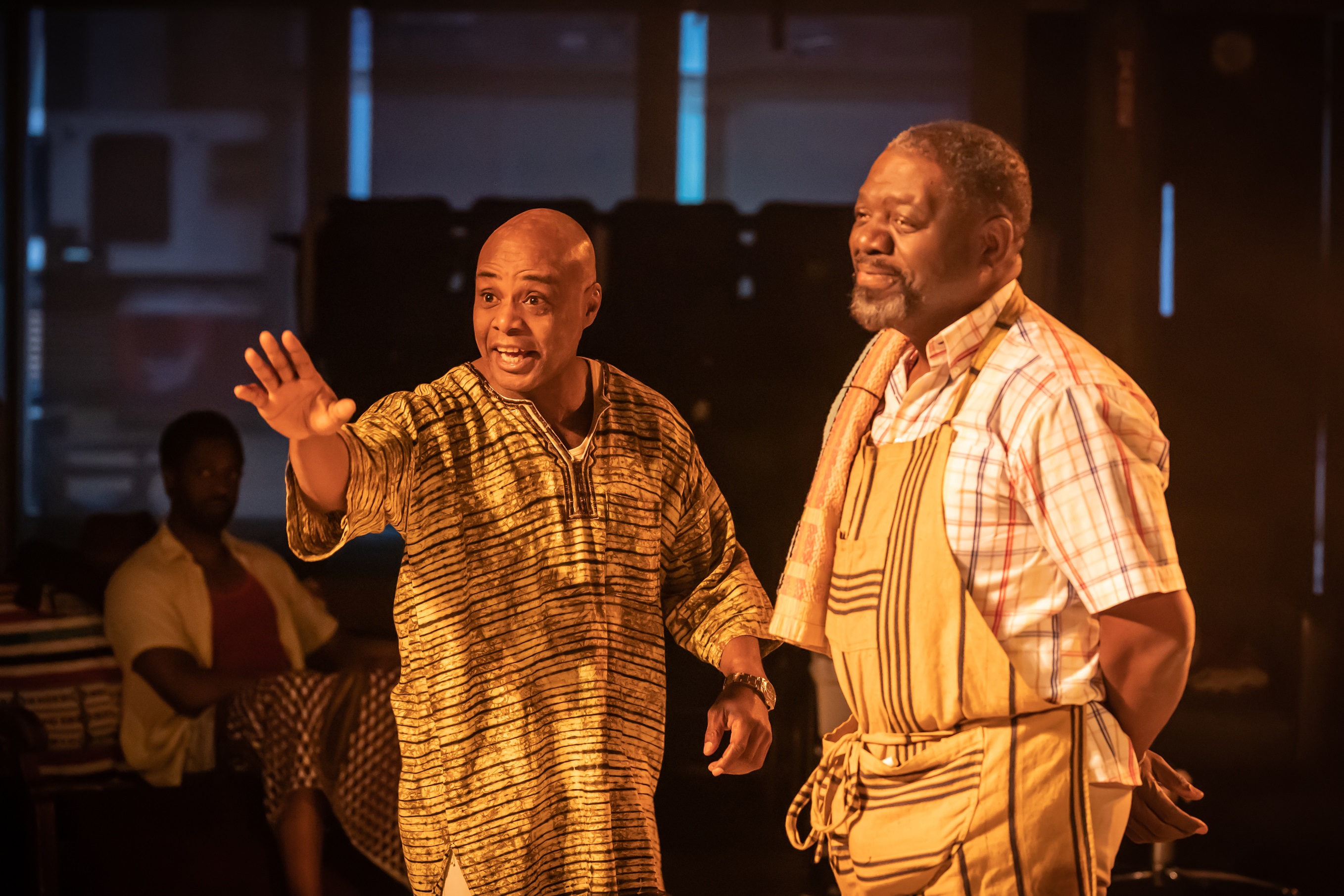
Barber Shop Chronicles allow the audience to be a ‘fly on the wall’ in locations most will never get to be in. How have audience reactions been to seeing this and what do you want them to get from watching the show?
It’s been interesting, I was talking to someone the other day who is from South Africa (White South African) and he was saying that its very brave to take the conversation to if you like the politics of Nelson Mandela as a good or bad guy and to show both of those different sides. I explained that a lot of people here don’t hear that other side, as mainstream media tend to push their belief that Nelson Mandela was purely a saint/hero. I’m not saying that he wasn’t but what I am saying is that there is a large group of people that believe that he let them down in various ways, but we don’t hear that here – whereas in the play we discuss them. We don’t tell people how to think but we give them options, and so for audiences sometimes it’s the first time in hearing about that. Another example is Mugabe, some only hear about the bad he did, but a lot of people have forgotten that it was him that helped change Rhodesia into Zimbabwe. Many don’t know that the British had a 20-year deal for them to return farms that were owned by the white farmer and they tried to negotiate that and then later decided to turn their back on that arrangement. Hence Mugabe decided to cease farms and so forth. This information is important for the audience to learn and we allow them to choose what side they fall on; maybe encourage them to do further research. I find that for the audience this opens up another door in their understanding and they are able to then follow it up with their own research which is a positive thing.
Within the UK, the audience reactions in London differ compared to the audience in Leeds. This has to do with diversity and how much mixing goes on within those communities. With Leeds, although it has a large black community there isn’t as much mixing as you have in London, so when we were in Leeds, we found it more of a challenge to ensure that the black community came to the theatre because they weren’t used to going to that theatre.
Barber shops give a sense of unity within our community. What has been the most memorable moment you have experienced when going to your own barber shop?
Well, it’s been a long time since I have gone to the barbers – I wear my hair shaved. Sometimes I go, but I avoid it as the queue is way too long. But when I used to go it was cool. It was fun! The only thing I didn’t like was if you went to the barbers on the day you were planning on going out in the evening, you needed to plan in advance as you wouldn’t come out of the barbers until really late and all the things you wanted to do, you can forget about it! My most memorable experiences were when I was young and we didn’t really have any black barbers where I lived, so I had to very gingerly pop my head around a barber’s and ask “do you do black hair” and they would say “oh yes of course”. And as they would start doing my hair, I noticed halfway through they always slow down and I would notice the barber looking to his friends and stuff. That’s when I would also feel an extra breeze going to my head from a particular part. That’s when I realised, they didn’t know how to do black hair, so they didn’t realise you had to sculpt the hair. They would cut too low and give me a little bald patch. Yet I still tipped them. I never went back but instead of raising hell I would say thank you and they would show me the mirror and ask if I like it and I would say “yeah, it’s great”. I was very happy when there were finally black barbers around.
You have been a part of Barber Shop Chronicles since it first was performed in at the National Theatre; how has the play changed since then?
I would say almost imperceptible. There have been a few tweaks here and there but largely it’s stayed the same. When new actors join the play, it can give a new feel to the text, for example they could say that same line in anger or tongue and cheek but the lines haven’t changed. Everything boils down to how they interpret it and that’s a good thing, especially for me as I have been here since the beginning. I have changed some of my characters over the tour by making them grumpier or more happy, wise or stupid. And that keeps it fresh. Some actors like to change themselves even per performance. Overall it hasn’t changed. The great thing about this play is that the pre-show gives us so much energy, we go out there and have fun with the audience. Their response shows they are up for the play and so are we and that drives through the show. Also because of the subject matter that we are dealing with is so close to our hearts and we have lived and breathed them; there is an energy there as well. I am always amazed by how fast the show goes and it’s such an enjoyable show to do.
Community and culture are the focus of the play. What does community represent to you and how does your culture impact your acting career?
Community is a funny one as I was born in England but moved around a lot and it was a time where there wasn’t a lot of African families in the UK, but we did have a community. Family friends become family and we would celebrate special occasions with them. I think that’s what we show in barber shops – how they are a corner stone within our community. It helps to educate the men e.g. as young boys’ parents would take their children to the barbershop and we would sit there and hear different conversations. Once you get older you can graduate to sweeping the floor and then the men’s conversations start to make more sense and you tend to listen more eagerly when they talk about women. Before you know it, you get to go to the barbershop alone and you become your own person rather than someone’s son.
It’s such a universal show dealing with themes with identity, fatherhood, relationships, most people can extract something from the show.
I think how the writer, Inua Ellams, came to this play was due to his friend, who was doing research into looking at how they can use barbers to help with mental illness within the black community and how they are like therapists. You can talk to them about all problems, making them become a second father who helps to raise the community. Regarding my culture impacting my acting, I would say culture is very important because most of my roles tend to be African. I haven’t been called up to play someone from Scotland or Liverpool for example, yet although I only lived in Africa for two years as a teen that means often I am seen through that prism. In that sense, it’s important. I resisted it at first as I didn’t want to be type cast. I don’t go around speaking with an African accent unless I’m with my aunties, but I find myself playing characters that do speak with this accent. There is a gentle conflict as I would like to play any role, but it’s always slightly difficult as I tend to get casted in plays by people who have seen me act previously and if they are similar roles you can get type casted.
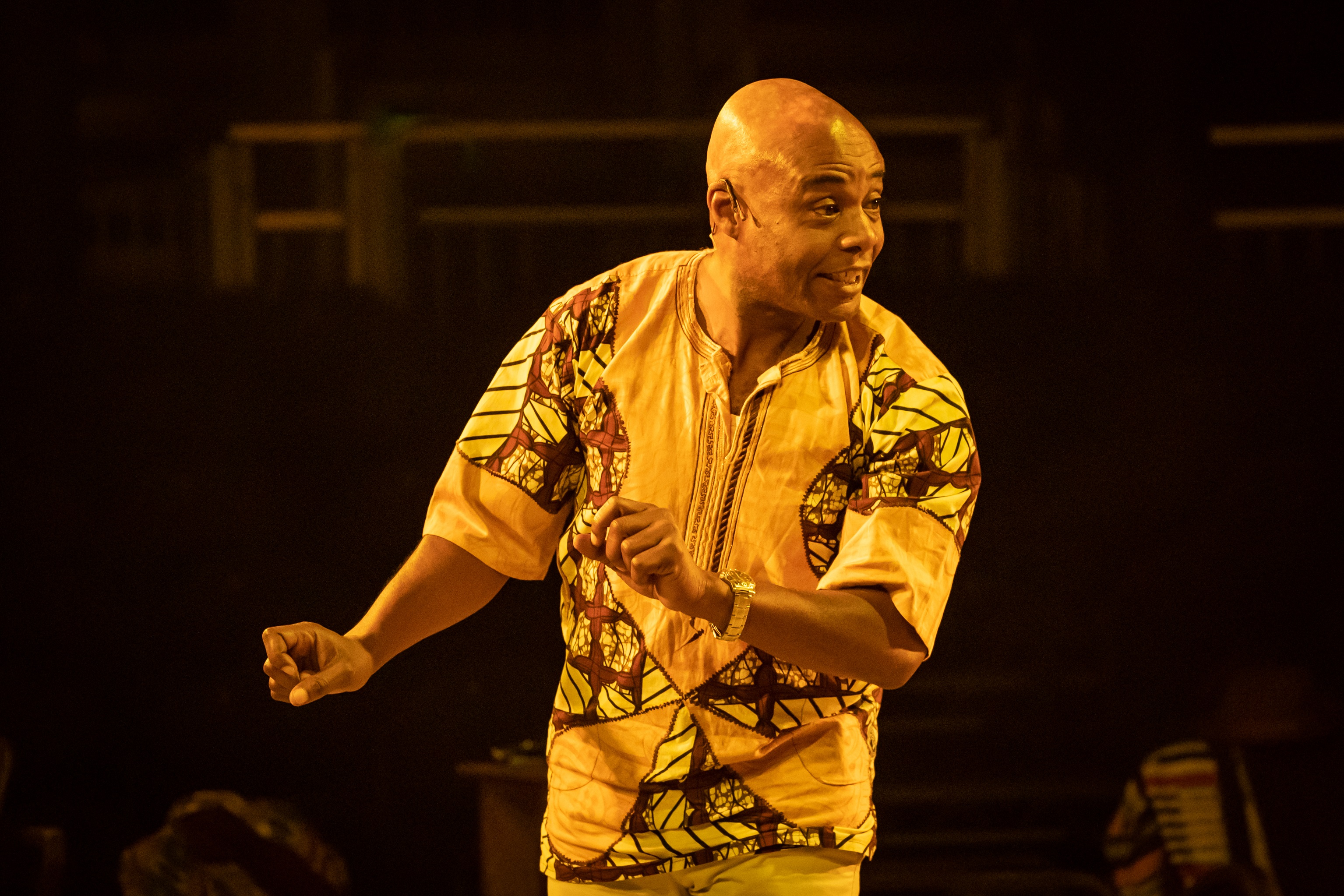
If you could be any character in the play who would you be and why?
I would be Andile, he is a character I play so it may be bias, but he is an older South African barber who is patient whilst he works with people. He doesn’t judge, he just gently gives people facts and waits for them to come around to him. I gravitate to someone like that who is gentle, not quick to judge, knowledgeable and wise. People say I am an old soul and so is he.
Roundhouse, London
July 18th – August 24th 2019
http://www.roundhouse.org.uk/
Birmingham Repertory Theatre
September 26th -28th 2019
https://www.birmingham-rep.co.uk/
Oxford Playhouse
October 9th – 12th 2019
www.oxfordplayhouse.com
Eden Court, Inverness
October 16th – 19th 2019
https://eden-court.co.uk/
Edinburgh Lyceum
October 23rd – 9th November 2019
https://lyceum.org.uk/
Nuffield Southampton Theatres
November 13th – 16th 2019
www.nstheatres.co.uk
Leeds Playhouse
November 20th – 23rd 2019
https://leedsplayhouse.org.uk/





















